Search Results

Optimizing Thermophotovoltaic Designs with Heat Transfer Simulation
Thermophotovoltaic (TPV) systems, known for their flexible fuel choice options, immovable parts, and potential for efficient power generation, can be optimized with heat transfer modeling.
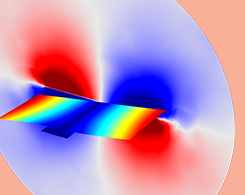
Analyzing the Viscous and Thermal Damping of a MEMS Micromirror
Micromirrors are efficient and inexpensive. Here, we go over 2 types of analyses for a MEMS micromirror design, frequency-domain and transient, using the COMSOL® software.
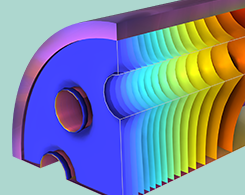
Evaluating the Performance of a Steam Reformer with Simulation
To design a steam reformer for hydrogen production, you need to couple mass, energy, and flow equations. The Chemical Reaction Engineering Module can account for this true multiphysics problem.
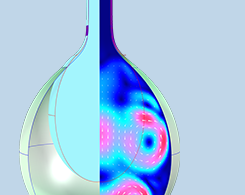
How to Model Fluid-Structure Interaction in a Water Balloon
They’re not just for playing games in the backyard: Water balloons are also an example of fluid–structure interaction in a nonlinear elastic material. Learn how to model this effect…
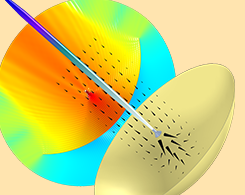
The Internet of Space Takes Off with Advanced Antenna Designs
You’ve heard of the Internet of Things, but what about the Internet of Space, which change how we share information and communicate worldwide. A key aspect of this concept: antenna designs.
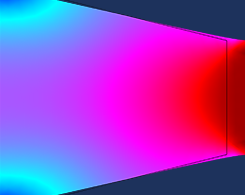
What Happens If I Use 2 Different Unit Systems in 1 Simulation?
Using 2 different unit systems for 1 project has led to historical disasters. Fortunately, you can use different unit systems in your simulation without issues by using the COMSOL® software.
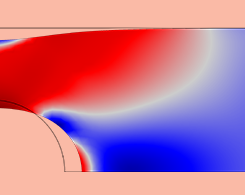
How to Implement Elastoplasticity in a Model Using External Materials
Sometimes the mechanical behavior of a material is not readily expressed in terms of a built-in model. In these cases, you can use external materials. Learn how with an elastoplasticity example.
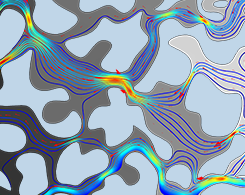
Computing Porosity and Permeability in Porous Media with a Submodel
Porous materials have complex geometries and may therefore be difficult to model. Setting up a microscale submodel is a useful approach to find the porosity and permeability of the medium.
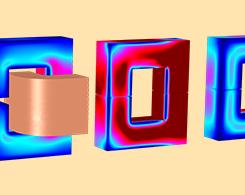
Analyze the Electrodynamics of a Magnetic Power Switch via Simulation
The AC/DC Module can be used to simulate electrodynamic devices, such as magnetic power switch circuit breakers. Follow along with this discussion to study the working principles of the device.
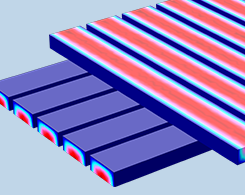
How to Save Computational Time with a One-Way Coupling Approach
Simulating heat transfer in fluids with forced convection can be very computationally expensive. Did you know that you can save a lot of time and resources with a one-way coupling approach?
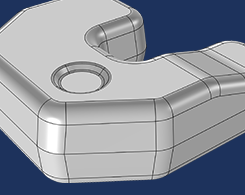
The Optimal Workflow for Complex Modeling Projects on a Deadline
You’re working on a complex modeling project under a tight deadline, and your computation is taking a long time to solve. You can breathe easier by using this optimized workflow for such scenarios.
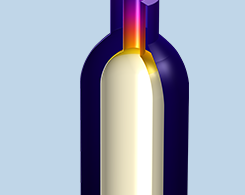
Can a Wine Cooler Actually Keep Your Beverage Cold?
When enjoying nice meals outside, some people use wine coolers to keep their beverages cold. But can a wine cooler actually keep a bottle of wine chilled, and if so, for how long?
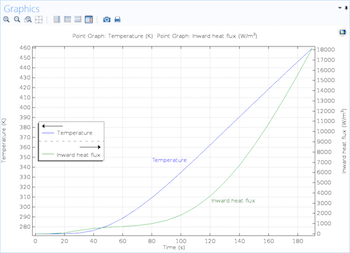
How to Create Graphs with Two Y-Axes in COMSOL Multiphysics®
Did you know that you can add a second y-axis to a 1D plot to include two scales of values in your simulation results? This blog post details how and also includes a video demonstration.
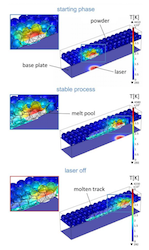
Analyzing Laser Beam-Matter Interaction in Selective Laser Melting
Selective laser melting is a common and important process in many types of manufacturing. You can model the interaction between the laser beam and matter for a closer look at this process.
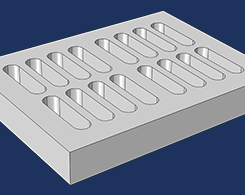
Creating a Model Geometry in COMSOL Multiphysics®
Learn how to create a geometry directly within COMSOL Multiphysics® using geometric primitives and geometry operations. Then, watch an introductory video series to see each step in detail.
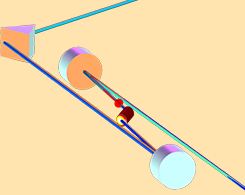
How to Analyze Laser Cavity Stability with Multiphysics Ray Tracing
If you’re looking for an in-depth example of multiphysics ray tracing, then check out this blog post about analyzing and predicting laser cavity stability in the COMSOL® software.
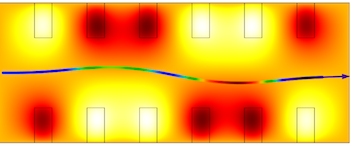
How Does the Choice of Ray-Tracing Algorithm Affect the Solution?
When performing a high-frequency optics simulation, do you use a sequential, nonsequential, or exact ray tracing algorithm? Learn how to choose to make the most of your solution.
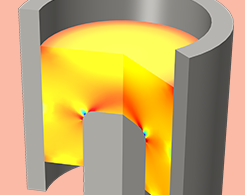
Simulating Powder Compaction with Porous Plasticity Models
Powder compaction is an important and popular technique in many manufacturing industries. You can use porous plasticity models to analyze and improve the powder compaction process.
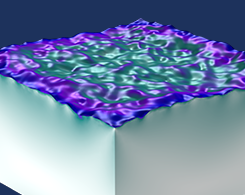
How to Generate Random Surfaces in COMSOL Multiphysics®
Get a comprehensive background and step-by-step guide to generating random surfaces in COMSOL Multiphysics®, such as rough surfaces and microstructures.
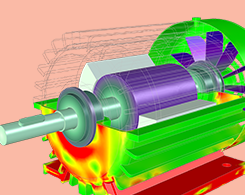
Analyzing the Structural Integrity of an Induction Motor with Simulation
The AC induction motor was invented by either Nikola Tesla or Galileo Ferraris, depending on who you ask. Either way, you can evaluate the structural integrity of this device with simulation.
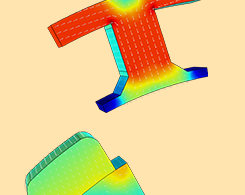
Capturing Eddy Current Losses in a Permanent Magnet Motor Design
Permanent magnet (PM) motors are becoming more prevalent in transportation due to their energy efficiency. You can study Eddy current losses in a PM motor design with the AC/DC Module.

3 Ways to Optimize the Current in Electromagnetic Coils
We give you 3 ways to optimize the current in electromagnetic coil designs using the AC/DC Module and Optimization Module, add-on products to COMSOL Multiphysics®.
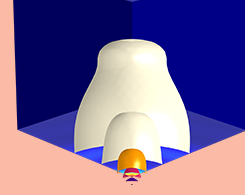
Using Low-Reflecting Boundary Conditions to Model Wave Propagation
Modeling wave propagation can be challenging. You need to balance the size of the computational domain with reflection at the surface boundaries. Low-reflecting boundary conditions can help.

Exploring the Effect of Greenery on Urban Air Pollution via Simulation
Can planting greenery in cities actually reduce air pollution? Researchers used CFD simulation to investigate how greenery affected the air quality of urban environments.
